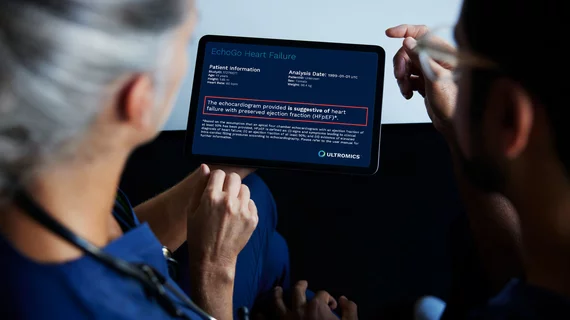Products from Avenda Health, Imagen Technologies, Ultromics OK’d for use in the US
An AI startup has been cleared to market a platform for precisely mapping prostate cancer with 3D visualization so the tumor can be treated without harm to healthy surrounding prostate tissue.
In announcing the FDA greenlight Dec. 7, Avenda Health of Culver City, Calif., says the product, called iQuest, allowed urologists in a clinical trial to define cancer margins with 97% sensitivity.
The AI’s guidance also prompted the treating physicians to change treatment plans in 27% of cases, “with the biggest change toward a more localized treatment,” Avenda says.
Noting that one in eight men will develop prostate cancer, the company says almost half of patients lose sexual or urinary function due to treatment.
“Providing physicians with 3D visualization of the cancer offers a better understanding of the extent of the disease to aid in treatment planning that can preserve quality of life while minimizing cancer left behind,” Avenda says.
The company also markets a soft-tissue laser ablation device and other prostate care products, and it recently raised $10 million in Series B funding to accelerate the use of iQuest and continue clinical evidence development, according to the Dec. 7 announcement.
Other FDA approvals of note:
> Imagen Technologies of New York has been cleared to sell a computer-assisted detection device, Aorta-CAD, which according to the company helps primary care providers detect aortic atherosclerosis and aortic ectasia on chest X-rays (Dec. 5).
> Ultromics of Oxford, England, may market its AI-based EchoGo software, which the company says can help detect heart failure with preserved ejection fraction from a single echocardiogram image (Dec. 6).

